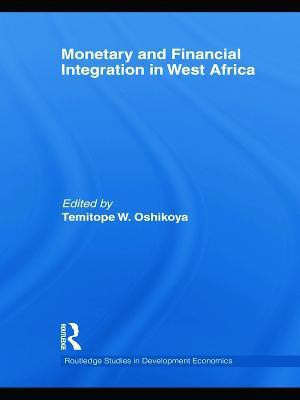Monetary and Financial Integration in West Africa(English, Paperback, unknown)
Quick Overview
Product Price Comparison
Monetary and Financial Integration in West Africa details the progress, challenges faced, and potential of the project intended to create a West African Monetary Zone (WAMZ) between Gambia, Ghana, Guinea, Nigeria and Sierra Leone. Given the trend towards regionalization of economic ties across the world, especially after the successful launch of the euro, a detailed analysis of the WAMZ is needed. As this is the first book on monetary and financial integration in Gambia, Ghana, Guinea, Nigeria and Sierra Leone, it is an essential read for anyone interested in economic development in West Africa, and indeed in Africa as a whole. This book is extremely well-researched, with detail on virtually all aspects of economic integration in the region; with issues ranging from the institutional details of integration, trade and financial market integration, to progress on convergence of macroeconomic fundamentals to the required payments system infrastructure. The book deploys solid empirical facts and sophisticated analyses to thoroughly defend its assertions. This collection is a valuable contribution and an excellent companion book for monetary economics or international economics classes as well as African development literature. It will provide students and researchers with an exciting chance to apply concepts of, for example, optimum currency areas, central bank structure or monetary policy approaches, to a real-world case of potential monetary union. Dr. Temitope W. Oshikoya and his collaborators have written the authoritative book on the subject of monetary union in the West African Monetary Zone. As is evident in the level of detail of the book, Dr. Oshikoya brings rich field experience from his role as Director General and CEO of the West African Monetary Institute. This book will be of interest to postgraduates and researchers in development economics; as well as policymakers, monetary authorities and development practitioners.


